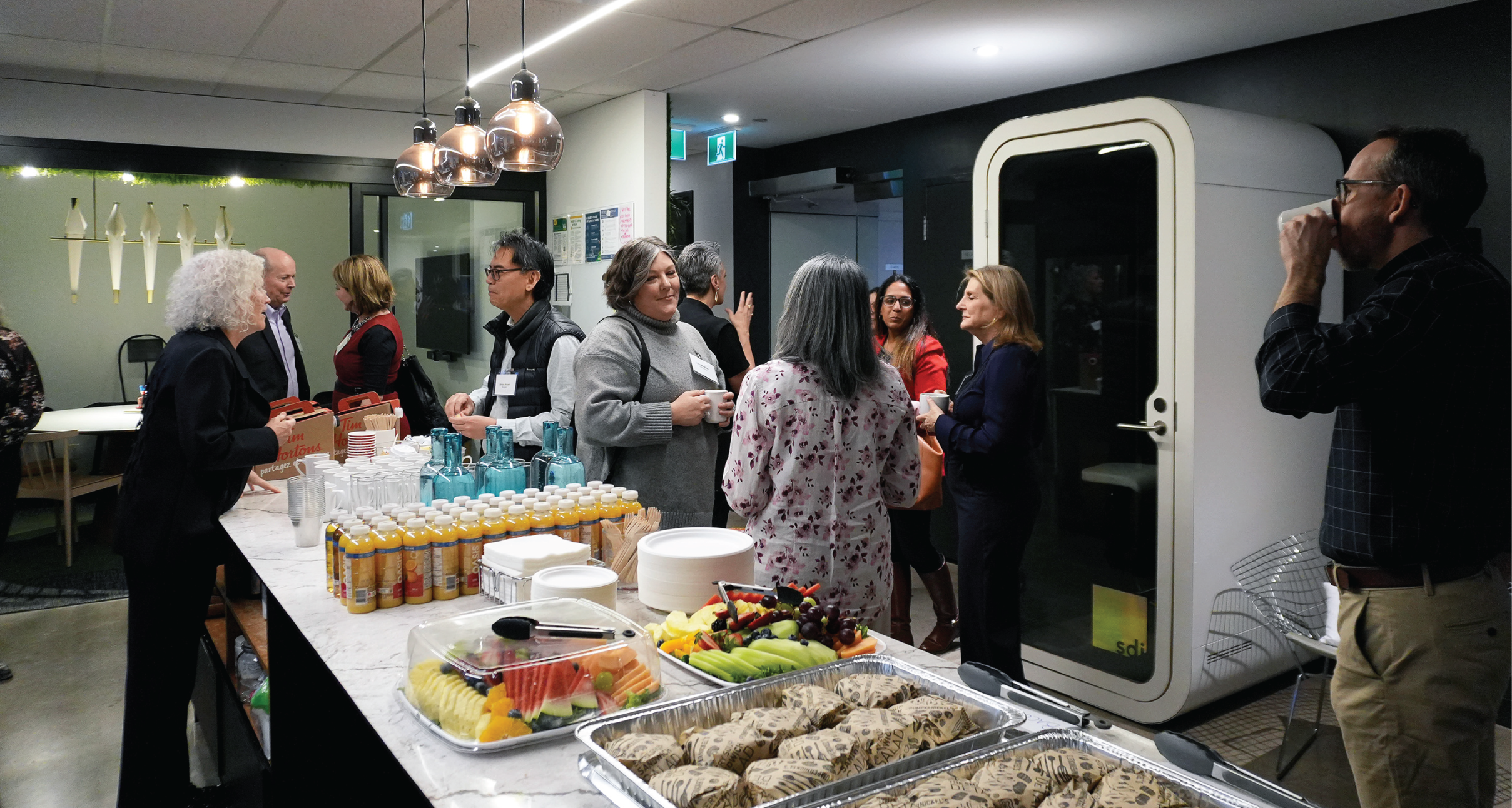Cresa is committed to building an inclusive workplace that encourages, supports, and celebrates the diverse voices of our employees. Our employee spotlight series gives our team members the opportunity to share their unique experience.
LaMean Koroma is a Vice President in Cresa’s Washington DC office, working with a variety of clients on real estate strategy and transaction execution, and has been with the company since 2015. LaMean is also Chair of Cresa’s Diversity, Inclusion and Belonging Council, whose mission is to encourage, support and celebrate the diverse voices of our employees, making Cresa a place where leaders are cultivated, and every person – from every walk of life – feels empowered to thrive.

Left: With family & friends in Washington D.C. for the wedding of my longtime friend Marcus Goodwin.
Right: Summer boating day in Cabo San Lucas, Mexico.
How did you get into the industry?
I began exploring other opportunities after a sales career at AT&T when a cap was placed on commissions shortly after I graduated from college. Although I was successful in that role, my cousin had been interning at a Commercial Real Estate brokerage firm and kept nudging me in that direction, so I finally looked into it. I was recruited to Cresa through a referral and I’ve been here ever since. It’s been a great ride and it’s only getting better.
What are some challenges you have encountered during your career and how did you overcome them?
The primary challenge I encountered starting in the business was that I didn’t really have a “safety net” to start with. I am one of six children who grew up on the wrong side of the socioeconomic end of the spectrum, so having to start from zero without an established network coupled with having to be on a “draw,” or loan model with existing student loan debt wasn’t exactly ideal. After a couple years in the business, with cold calling as my primary tool of generating business, the draw balance was adding up and I nearly exhausted all of my savings. But Rich Rhodes, one of the Cresa Managing Principals in DC, stepped in and took personal interest in me. He, along with Mindy Saffer, Mike Hetchkop, and a host of others vowed to teach me how to not only be a great business developer, but to expand my skillset as a broker/advisor. This guidance allowed me to hone my presentation skills while also sharpening my technical expertise as it relates to financial analysis and learning the art of negotiation. In an industry where there aren’t that many people that look like you, it is imperative to create as much value as possible so that opportunities that come your way are never second guessed or questioned. I hope that some of the success that I’ve had to date serves as a springboard to help other diverse individuals get a shot in what is truly an incredible business.
Why are you passionate about what you do?
Because I have two roles at the firm, this answer is two-fold. Growing up, I always wanted to be a defense attorney. I was a Pre-Law student at Howard during my undergrad, so when the opportunity arose to be with a firm that exclusively represents tenants/occupiers, setting the stage to level the playing field, I couldn’t think of a career that could be more fitting for me. Far too often, we see people and businesses taken advantage of because they lack proper representation, so having the front line experience to and getting to be that barrier and buffer to ensure that doesn’t happen is both refreshing and incredibly rewarding.
As it relates to my second role as Chair of the DIB Council at Cresa, I can’t speak enough about my passion. I grew up in Lanham, Maryland which is in Prince George’s County, a predominantly African-American suburb right outside of DC. The black experience is sometimes hard to quantify because it’s different for everyone, but universally there are experiences we all share by nature of commonality with our history in America. To be honest, this isn’t about sensationalism, or an oversimplification of how exasperating our experience was and still is—it’s more so about identifying the reasons why it is so difficult for people from my background to find their way to commercial real estate.
We can all agree that there are innate barriers to entry, which quite frankly exist in any industry that is niche and exclusive. What you don’t want and can’t have is exclusion. Keith Ferrazzi has a popular book called Never Eat Alone and he was the keynote speaker at our last live Cresa Conference. I actually read the book in college, and the one line that always stood out to me was about how poverty was more than not having money; Ferrazi highlighted how poverty was more so about not having resources or a network that could help change your situation for you and your family. I would be lying if I didn’t say there wasn’t a bit of crusaderism in the role to try to ensure that people from diverse backgrounds have the same equal opportunities to be part of this wonderful industry. Diversity is about so much more than ethnic background and make up. Every day I strive to make sure that our firm is more aware of the different levels of diversity and that we continue to celebrate our diverse voices while widening our net, because a more open tent only helps all of us now and in the long run.
What organization(s) are you currently involved with?
I’m involved with a local DC nonprofit called Distant Relatives, which was started by two of my childhood friends William Asiedu and Messai Belayneh, who have grown it immensely over the past 2 years. Their mission of helping and serving the homeless in our community is near and dear because they give a voice to the voiceless and lend a helping hand to those in need. They also have several projects in Africa, and I am a first generation American whose parents are from Africa. Working with Distant Relatives has reinforced the need to be grateful and thankful for everything I have. Things can all change in an instant. If you are interested in learning more, please feel free to reach out to me and I will connect the dots with William and Messai so folks can be up to date with upcoming charity and networking events.
How do you think we can better promote DIB within the CRE industry?
We all need to be deliberate and intentional in our efforts to create equity for people from diverse backgrounds. Embed DIB initiatives into company recruitment efforts, in everyday company culture, and in our networks and communities. We need to realize that increased diversity is not a zero-sum game. Helping someone else does not mean that another person has to lose. We all win and learn more in the end when all beliefs, thoughts, and perspectives are represented.


